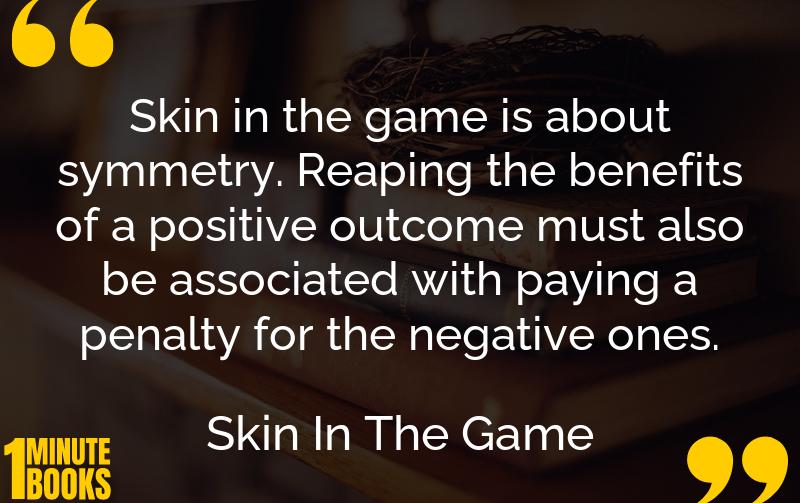
Nassim Taleb’s book explores the concept of ‘skin in the game,’ emphasizing that individuals should encounter the consequences of their actions. He discusses its implications in fields like investing, societal dynamics, and risk management.
Main Lessons
- Skin in the game refers to having personal risk in any decision or action.
- Symmetry in decision-making is crucial: enjoying benefits should also come with sharing risks.
- Minority groups can influence majority decisions due to their strong stances.
- Having skin in the game can enhance learning and understanding by making stakes personal.
- Ergodicity highlights the importance of evaluating risks by their time-related impacts.
- Career inequalities are perceived negatively without skin in the game.
- Taleb suggests inequality is less concerning if positions are fluid and merit-based.
- Investors should choose managers who share risk and reward outcomes.
- Proper risk management involves understanding inevitable destructive risks.
- Employees become more reliable with skin in the game compared to contractors.
- Investors benefit when executives have substantial company stakes.
- Everyday decisions should be informed by potential long-term consequences.
- Maintaining an ergodic strategy means avoiding risks that lead to irreversible loss.








